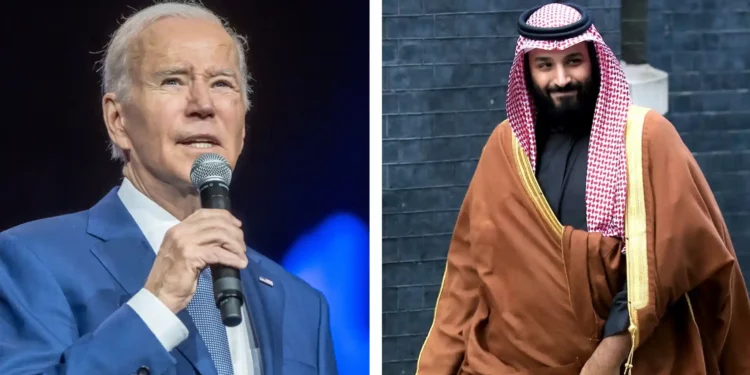The pact might also allow Saudi Arabia to need the United States Senate’s approval and provide Saudi access to advanced US weaponry that wasn’t accessible earlier
The United States and Saudi Arabia are nearing a significant pact that could be a potential game-changer for Saudi with its promise of security guarantees, diplomatic proposals, and economic incentives. The agreement, if happens, could contribute to reshaping the Middle East.
It would offer Saudi Arabia guarantees on security and spread out a potential system for strategic binds with Israel in the event that its administration finishes the conflict in the Gaza Strip. The agreement is likewise a work to resolve various international issues in the locale.
Talks concerning the equivalent have been advancing between Saudi Arabia and the US in the past couple of weeks. Alongside this, resolving the international issues would likewise fortify the US position in the district. By offering a method for finishing the ongoing Israel-Palestine issue, the understanding likewise looks to raise pressures and prepare for a feasible harmonious settlement.
This might also allow Saudi Arabia to need the US Senate’s approval and provide Saudi access to advanced US weaponry that wasn’t accessible earlier.
In return for significant US expenditures in artificial intelligence and quantum computing, Crown Prince Mohammed bin Salman would consent to restrict Chinese technology from entering his country’s most sensitive networks and receive US assistance in expanding its civilian nuclear program.
Following the conclusion of negotiations between the US and Saudi Arabia, Israeli Prime Minister Benjamin Netanyahu would be given the option to either follow the agreement and establish formal diplomatic connections with Saudi Arabia, increase investment, and further integrate the region, or stay out of it. Ending the Gaza War and accepting a road toward Palestinian statehood would be Netanyahu’s two main demands, and neither would be easy.
Nevertheless, there are many obstacles and unknowns on the path to a finalization. Above all, the region is defined by complex geopolitical conflicts and conflicting interests. The resistance of Israeli Prime Minister Benjamin Netanyahu to accept compromises on crucial issues like Palestinian statehood, uncertainty among US lawmakers, and worries about Saudi Arabia’s human rights record present difficult challenges.
There are strong reasons for all sides to seek a diplomatic breakthrough, notwithstanding these difficulties. In terms of foreign policy, a deal that works would be a significant win for the US, echoing its commitment to stability and security while increasing its influence in the region.
For Saudi Arabia, the agreement could bring increased security and advanced military technology. Along with this, highly required investments in important sectors such as artificial intelligence and nuclear energy would also pour in.
For Israel, standardization of relations with Saudi Arabia could give an important key partner in an unpredictable area, opposing the impact of provincial rivals like Iran and Hezbollah. Besides, it could offer Top state leader Netanyahu a genuinely necessary political lift, improving his standing both locally and globally. The potential US-Saudi Arabia-Israel settlement addresses a striking strategic plan with extensive implications for the eventual fate of the Middle East.
While the path ahead is filled with difficulties and vulnerabilities, the commitment to upgraded security, financial collaboration, and provincial strength may eventually compensate for the dangers. As dealings proceed and assumptions increase, the world watches eagerly, confident that this significant agreement will lay down the blueprint for a more brilliant and prosperous future for all countries in the region.


















